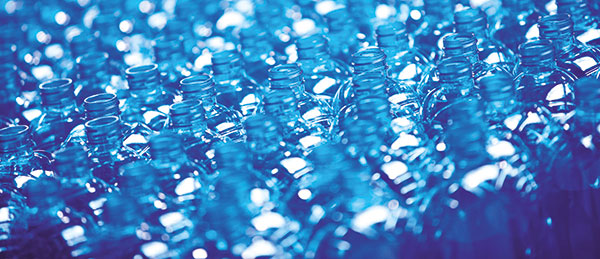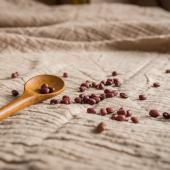R-PET: from bottle to bottle
Mineral water bottlers and recyclers have created a voluntary consortium that will effect a closed supply chain in order to recover more PET and produce raw materials with food safe properties. Called Coripet, the new consortium brings to the table original ideas to involve supermarkets and award virtuous consumers.
It’s been a long time since “Plastic” was “bad”: robust, yes, impermeable and light, sure, but also “artificial” (and for this very reason at least a little harmful), not to mention its nefarious destiny as a non-biodegradable piece of trash...
Today one speaks of plastics, plural, each with specific properties and applications and all of them recyclable to make the most of the material. A few more than others, like PET, which, appropriately selected and recycled, reverts to raw material with the same properties and functionality of the original, but with reduced environmental costs (CO2 emissions eight times lower, among other things). A precious but scarce resource, then, even more so since new regulations authorizing the use (up to 50%) of recycled PET in packaging in direct contact with foodstuffs has opened new outlets.

It’s from this consideration that, two years ago, a pool of bottlers and recyclers formed the Italian PET recovery consortium called Coripet, which seeks to feed a virtuous cycle of production-use-recovery of PET bottles with the necessary purity requirements. It would be a closed supply chain, then, like those that already exist for other materials, integrating the public circuit of separated waste collection, whose packaging component is governed by the Conai system. Now that it has developed technical regulations and procedures, a structure and tools, the new consortium has also implemented the industrial phase in its plan and is already seeing the first fruits confirming the correctness of the evaluations and ideas at the root of the project.
 But was another consortium needed?
But was another consortium needed?
The consortium’s president, Giancarlo Longhi, explained the principles and logic that inspired the foundation of Coripet: a president selected, not by chance, from among the founding fathers of the national circuit of packaging recycling, later directly involved in its management as acting manager of Conai.
«In Italy, PET recycling has been hovering for a long time around 40% of that put on the market for consumption - Longhi explains - while in various countries of Central and Northern Europe this figure is between 80 and 100%, enabling re-insertion into the market of remarkable quantities of this precious material. Italian industry also needs it, but as far as water packaging goes, it cannot reach the traditional recycling circuit due to obvious quantitative and qualitative gaps. To have an idea, just consider that in Italy in 2012 453,000 t of PET packaging was in circulation, of which 186,000 was recycled; the difference of 267,000 tons thus represents the wealth which the current collection system is not able to intercept
And it’s not just a matter of volumes: in the bell-shaped separated collection containers the consumer discards all container types, even from chemical products and detergents, which by law cannot then be used for beverage bottles (Health Ministry Decree n. 113/2010). The requirements established by the law, in fact, aim to guarantee the material’s purity - a maximum share of pollutants of 5% is permitted – and traceability, or, more properly, the “chain of custody” documenting the entire journey, from its origins, of the bottle to be recycled. In order to reach these objectives, experience teaches, specialized circuits like ours are needed».
Actors and objectives
(rewarding virtue)
Coripet is comprised of three of the four Italian recyclers holding the EFSA (European Food Safety Authority) seal, namely Aliplast, Dentis and Valplastic, authorized to produce R-pet suitable for food contact. They have formed the consortium together with a large group of mineral water producers - brands like San Pellegrino, Ferrarelle, Lete, Norda, Maniva and others - which represent 35-40% of the national market (with one conspicuous absence, San Benedetto, which “runs solo” with its own circuit, Editor’s note).
A the foundation of this solidarity is a project that aims to recovery the greatest possible quantity of water bottles in order to make them available to recyclers, and finally, users who now enjoy another source for documented and remunerated cost raw materials. Thanks to an original idea that has enabled involving a major third party actor, until now rather hesitant to commit firsthand to recovery operations: supermarkets.
«Because the environmental credit that funds separate waste collection remains tied to Conai - and naturally our members also pay it - Coripet has conceived a system that pays for itself but without imposing additional costs. We have therefore identified super- and hypermarkets as ideal locations for returning used bottles and established a mechanism of incentives that encourages virtuous consumption habits. For this reason, rather than add a deposit to every beverage bottle purchased, as happens in Germany, for example, a deposit which is then returned when th bottle is recovered, we have opted for an “awards” system: the citizen who returns the empty bottle to the supermarket will receive a coupon, loyalty point or whatever else the distribution brand decides to offer. In such a way, retail enjoys a new marketing and loyalty tool, which in practice has proven more effective than the highest expectations, demonstrating how powerful is the combination of the economic incentive of a discount with the gratification of directly contributing to resolving an ecological problem».
Initial results of the project
The Coripet circuit employs a simple strategy widely used abroad, especially France. The POP hosts the bottle collection machine, supplied by the consortium. The biggest one, about the size of a car, has a capacity of 9,000 containers per day and is designed for hypermarkets; the smallest, for 1,500 bottles, services smaller surfaces. The consumer brings the empty bottles in good condition (not crushed), so that the machine can read the barcode and automatically record all information necessary for traceability. The bottles are compacted and assembled in small bales (30x30) of high specific weight (slightly less than glass), which the Coripet truck picks up to then ship for recycling, without transiting through a selection center, since the recycling material is already mono-material.
«In Lombardy, Piedmont and Campania, where we have implemented experimental collection, we managed to recover approximately 2,000 t of bottles in just a few months. The most significant quantities were recorded in Campania, where the disposition of the population and an excellent partner such as Decò-Multicedi enabled sending more than 24 t of post-consumption material for recycling and, with the help of new partners and Multicedi itself, we plan to enhance the consortium’s presence in the rest of Italy.
There are also other positive repercussions. Coripet’s activities offer new technological stimuli to the Italian recycling industry and contribute unequivocally to enhancing citizens’ environmental sensitivity: in a straightforward manner and “down the block,” they show how waste can be transformed into a resource.
The most alert municipalities and provinces (but oddly with the absence of regional governments, which also have every reason to support experimental initiatives and alternative recycling programs) appreciate the project and are beginning to agree to sponsoring an initiative that brings prestige to the community and strengthens the collective separate collection effort».

















